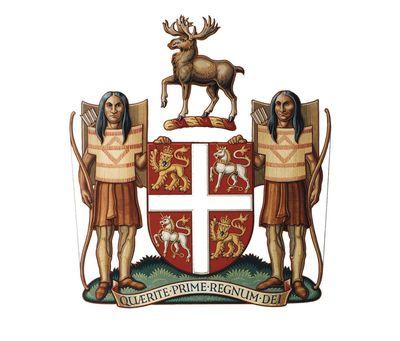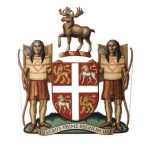Newfoundland in severe debt due to Muskrat Falls
As Tint of Ink reported earlier, Muskrat Falls costs $28,000 per adult person in Newfoundland and Labrador.

Picture from APT News
Since then, the Muskrat Project has increased costs and the CEO of Nalcor estimates higher power costs for Newfoundlanders than expected. In fact, it will likely be worse than the 1969 Quebec deal.
The Muskrat Falls investigation interviewed former premier Kathy Dunderdale and she had expected the project to possibly increase $50M over budget under severe circumstances.
The inquiry has brought forward new information and questions about the project. There is a vast number of documents involved in the inquiry and key witnesses have been brought forward for questioning.
The hope is to reveal any significant problems made along the way that lead to the current situation: an unsafe project which ignored indigenous rights and cost billions of dollars taken from the pockets of everyday Newfoundland and Labradorians.
Harassment in Confederation

Picture from The NL govt site
MHA Sherry Gambin-Walsh and MHA Pam Parsons came forward with harassment allegations against Liberal Party Ministers Eddie Joyce and Dale Kirby, respectively.
Following those allegations, MHA Cathy Bennett spoke openly about the bullying and harassment issues she has experienced within her caucus. Bennett eventually retired from politics. She criticized the outcome of the investigation, stating it was focused on individuals rather than a corrupt system.
PC MHA Tracey stated she had a complaint ready to go but wanted a guarantee that an independent investigator would be in charge.
Following that statement, MHA Colin Holloway put a complaint forward against Joyce and Kirby- but also NDP leader Gerry Rogers and PC Leader Paul Davis.
All complaints fell in the lap of commissioner of legislative standards, Bruce Chaulk, who eventually stated that he hired an outside investigator.
However, Chaulk performed the majority of the investigation with hired investigators helping him throughout the interviews.
The commissioners office stated they didn’t find any real evidence of harassment though some codes were broken and some issues needed to be reprimanded.
The House of Assembly awaits the commissioner’s reports.
Either way, there’s a whole lot of party politics taking precedence over the real issues: there is harassment within the confederation building and it has to be dealt with in a different way. Parties and passive aggressive bullying and disorganized investigation has led to questionable outcomes. We have to ask, how can any elected officials get any work done with so much focus on such incidents?
Premier Ball said the investigation was flawed, awhile MHA Perry said things need to change to keep women in politics.
The year of 2019 intends to bring forward a revised harassment policy specific to elected officials within the legislature.
Some Newfoundland towns take a step in the wrong direction

While most municipalities across Canada are taking a modern step forward and celebrating Pride week, a few towns in Newfoundland pressed against any progression for LGTB+ rights.
The municipality of Springdale voted against a rainbow crosswalk proposal from a student Gender – Sexuality Alliance.
Actually, they voted against the proposal TWICE.
First the town said they didn’t want to spend money on the crosswalk, while the second time they stated they didn’t want to set a ‘precedent.’
Precedent of equality and inclusion? A precedent of acceptance ? What kind of precedent is the town council in fear of with a rainbow crosswalk- the most friendliest type of crosswalks?
Some other Newfoundland towns were disappointed in Springdale council’s decisions and expressed their personal support by painting rainbow crosswalks in their municipalities.
However, the anti-homosexual attitude reared its ugly head again in the province just a short month later about in the small town of Middle Arm.
A presentation about LGBTQ+ inclusion for the town’s high school was viewed by only 13 of the 85 students in the rural town.
Some parents expressed their concerns against the program on Facebook, mainly stating religious reasons. The online discussion got pretty intense and narrow-minded, with most parents stating their children wouldn’t be exposed to any discussion around LGBTQ +
The course is organized by The Get Real Movement – an group who travels the country to talk to students about inclusion. They had never encountered a push back from any other schools at this point, and members were flabbergasted by the protest against the program.
The small percentage of students involved in the program, proved a backwards response to teach children to be kind, tolerant, accepting and inclusive. It also exposed small town Newfoundland at its core in such a negative light. While proving that The Get Real Movement needed in such a situation.












Leave A Reply